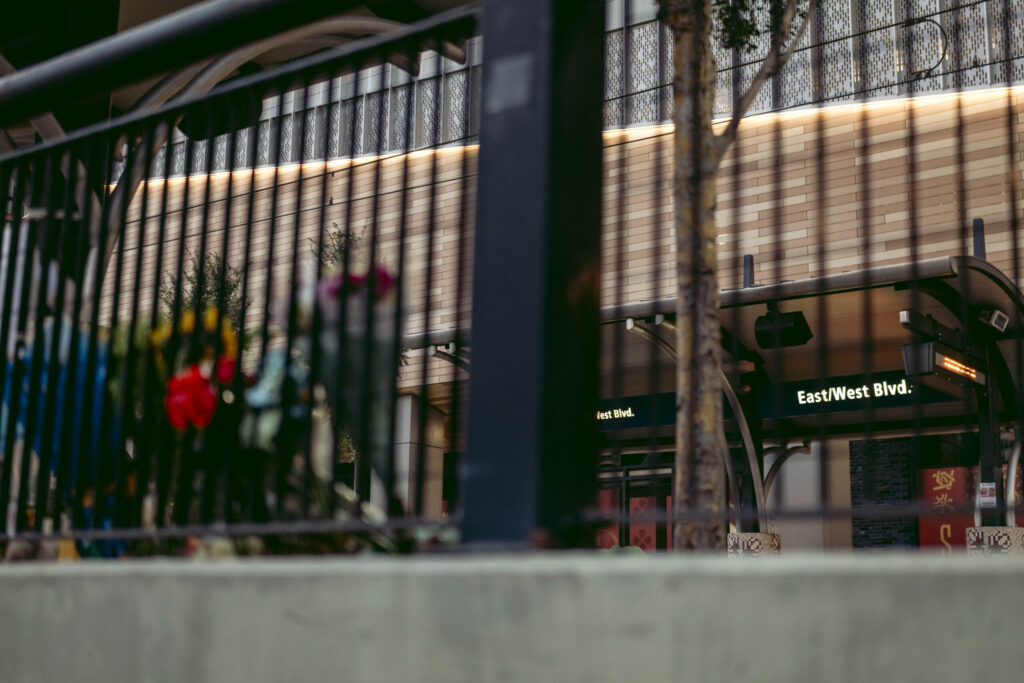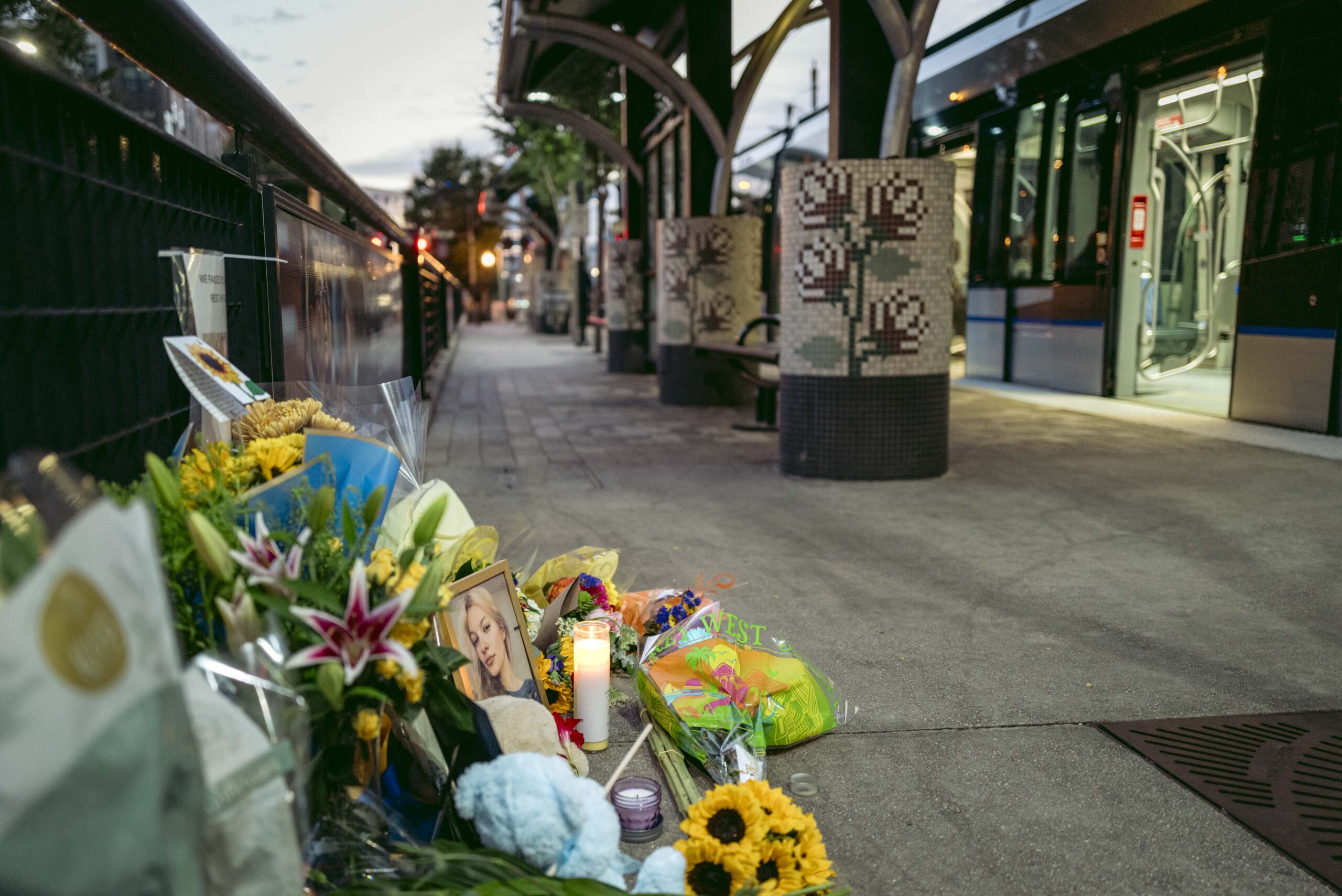A half-century ago, a man wrote to author E.B. White to say he was losing faith in humanity, and White responded in a letter:
As long as there is one upright man, as long as there is one compassionate woman, the contagion may spread. Hope is the thing that is left to us, in a bad time.
White’s words came in handy this past week, which was an all-around bad time. For our city. For our country. For anyone who subsists on faith in humanity.
Video of Iryna Zarutska’s murder on a public transit line, released last weekend, brought people here and across the country to the point of tears and rage. Rightfully so. It was awful. The national media, the president, and online commentators stormed through Charlotte like armies on digital horseback, trampling our city and its officials. And then, terribly, they left to tend to another tragedy, the assassination of Charlie Kirk in Utah.
Zarutska’s stabbing has sparked investigations from the FBI, the Federal Transit Authority, and the state auditor. It’s moved local officials to increase security and crack down on fare-skippers. State leaders are pursuing laws to stiffen penalties on repeat offenders and eliminate cashless bail. And the powerful state Senate leader said Thursday he wants to resume North Carolina’s death penalty. They’ve yet to share details of the bills, but it’s clear that our city and state will be fundamentally different after this murder than they were before.
What’s left to us now, as we survey our city’s soul?
Charlotte has strived for years — often with great success — to be the most presentable dish at the potluck of American cities. Now, to millions of people worldwide, it’s been reduced to a few blue seats on a light-rail train.
To those of us who live here, who work here, who fall in love here, who raise families here, and who put in work to make this a better place to do all of those things, it’s home. And now our home needs repairs and upgrades, but it’s certainly not the ramshackle hellscape it’s been made out to be.
I didn’t know Zarutska, but we lived in the same neighborhood. My son rolled his scooter on the same sidewalks she walked every day. My mutt’s tried to sneak leftover chicken wings off the same streets she crossed. We’ve taken the same seat on the train, just inside the door, front row. I didn’t need national attention to feel shaken by this.
I spent this Monday in the emergency room after a clumsy fall. From my hallway bed, I watched two things, through the blur of morphine: The social media firestorm on my phone, and the doctors and nurses running around me, tending to people in various states of the human experience. Every so often a song played to indicate that another baby had been born upstairs. I put down the phone, and watched people help people.
Charlotte isn’t run by a single leader, but on the fuel of hundreds of prominent voices. And in our most important moments over the past decade, we’ve debated over coffee, argued and asked about each other’s families, all at the same time. We can do that again. Now.
Many of Charlotte’s top public officials remain quiet. Our mayor faced heaps of criticism, including from me a couple of weeks ago, some fair and some oversimplified. They were outmanned and frankly unprepared for the fervor of their critics, who left no space for the thing we needed most from them: vulnerability. Communication is more fraught than any other time I can remember. And our leaders couldn’t summon a comforting response. But as one friend reminded me last week, you can’t meet passion about crime with logic and stats.
A few people did stand out. Russ Ferguson, the Republican U.S. Attorney and a Charlotte native, who’s raising a family here, openly choked up several times when he announced he was filing federal charges against the alleged killer. And Spencer Merriweather, the Democrat district attorney, who’s also raising a family here, spoke sternly on Charlotte Talks on Wednesday about the strengths and weaknesses of the local justice system, and mental health. Ferguson and Merriweather are from opposing political parties, but they praised each other — Ferguson in his press conference, and Merriweather in a phone call with me. That gave me hope because, as Merriweather said in his WFAE interview, “I can assure you that when a victim’s family, who’s lost a loved one, walks into this office, I am not asking them what party they belong to, and they sure aren’t asking me.”
More of that.

It’s tempting to let the shame pile up. Shame that we failed Zarutska, a Ukrainian immigrant who escaped war to come here. Shame that we failed suspect DeCarlos Brown Jr., born and raised here, charged with more than a dozen previous crimes here, and became so mentally ill he believes an “object” in his head is controlling his actions, as the Observer reported. And shame that we know this will be one of 70-plus homicides here this year. Our violent crime rate isn’t much different from other big cities, but that doesn’t make it acceptable, especially not to victims.
But our story won’t end here. Back in 2014, when a bunch of scholars from Harvard and Cal-Berkeley said we ranked dead last in economic mobility, the city rallied. The word of the next decade was “opportunity,” we rose in the rankings, and the primary author of that study now says that we’re a model for how to close the gap. When housing became a crisis, the city funded more. When Pre-K proved crucial, the county expanded it. And Charlotte’s business community built one of the top post-pandemic urban economic engines in the country.
For 25 years, one Charlotte woman visited nearly 1,000 crime scenes, holding candles and comforting families. Judy Williams — known as Ms. Judy — founded Mothers of Murdered Offspring after her goddaughter was murdered by a serial killer in 1993. Ms. Judy kept pictures of victims on a board in her apartment, to make sure each one was remembered by someone. She died in 2020, but I can’t help but think, if one person can shoulder all of that trauma, there’s no telling what we can do about this trauma we all share.
This is an opportunity for Charlotte to lead by example as the country navigates a dangerous political moment. It’ll take truth, communication, optimism, and humility. We can display those traits, or resort to bitterness, defensiveness, and piling on. Our choice.
We can honor Zarutska’s family’s requests to stop sharing the videos and make lasting changes, or keep spreading their nightmare and sending prayers. Our choice.
We can mourn the loss of lives around our city, or downplay them or overplay them in service of a political argument. Our choice.
We can learn to understand the nuance that public safety and homelessness and mental health are broader issues, or assign blame to a narrow few. Our choice.
We can get sensitive to questions about our policies, or raise the questions ourselves. Our choice.
We can present a new safety plan immediately, or hope this goes away. Our choice.
We can house the needy and heal the unhealthy, or let them spiral aimlessly and dangerously. Our choice.
We can hold the elevator door, or let it shut in someone’s face. Our choice.
We can win battles on our phones, or meet people in person. Our choice.
We can criticize our leaders, a foundation of democracy, or reduce criticism to contempt, which poisons trust. Our choice.
We can splinter and break, or bond and grow stronger. Our choice.
We can be better for this, or worse. Our choice.
Sebastian Junger, in his book Tribe, writes that if you want to make a society work, then you don’t keep underscoring the place where you’re different. You underscore your shared humanity.
Maybe what’s left to us now, as Charlotteans, isn’t just hope but humanity itself. We should preserve it at any cost.
